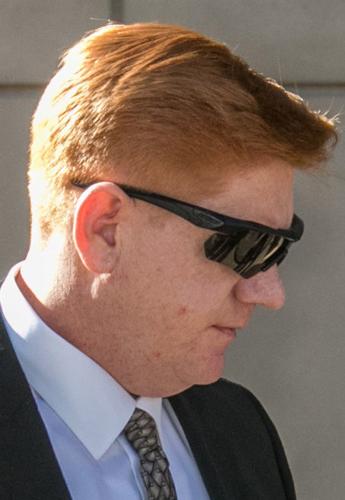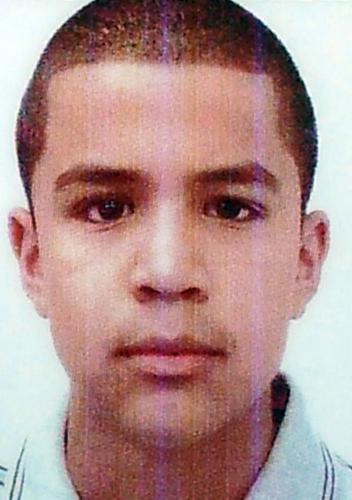The attorney for a Border Patrol agent who killed a teen by firing through the border fence contends his client can’t be retried after a jury deadlocked on whether he is guilty of manslaughter.
In court filings, Sean Chapman says the theory of federal prosecutors was that Lonnie Swartz deliberately shot and killed 16-year-old Jose Antonio Elena Rodríguez in 2012.
In fact, he said, Assistant U.S. Attorney Wallace Kleindienst specifically argued to the jury in the first trial that Swartz was guilty of second-degree murder because he “executed” the teen for throwing rocks across the border and that the agent “intended to kill Jose.”
The jurors didn’t buy that argument, acquitting the agent on the charge of second-degree murder in the trial earlier this year in Tucson. But they were unable to reach a verdict on the instructions by U.S. District Judge Raner Collins that they also should consider lesser charges of manslaughter; they voted 7-5 against conviction.
Now prosecutors want a new jury to consider those lesser charges at a trial set to begin in October. But Chapman said it would be unfair — and he contends illegal — to let prosecutors present a new theory of what happened in Nogales when they told jurors in the first case that the facts added up to murder and not manslaughter.
“Agent Swartz will be deprived fundamental fairness if the government is allowed to present flip-flopping theories about the same alleged crime,” the defense attorney said.
Swartz has never denied shooting Elena Rodríguez but said the teen was throwing rocks at him across the border. Chapman said Swartz was acting in self-defense.
Prosecutors argued that didn’t justify Swartz’s firing through the fence. An autopsy found the teen dead on the Sonora side of the border with 10 shots in his back.
All that goes to the arguments Kleindienst made to jurors in the first trial urging they convict him of second-degree murder rather than manslaughter.
“Government’s counsel explicitly and unequivocally argued against voluntary manslaughter, telling the jury that Agent Swartz did not discharge his firearm during a sudden quarrel or heat of passion caused by provocation,” Chapman told Collins.
Chapman said prosecutors will be presenting the same evidence and same witnesses at the new trial.
“In other words, the jury will hear the same evidence the government presented previously,” the defense lawyer wrote. “This time, however, the government will argue the evidence leads to a conclusion that is opposite of what it argued in the first trial.”
Kleindienst, in his own legal filings, acknowledged arguing to jurors that Swartz acted “with malice aforethought,” defined in law as “either deliberately and intentionally or recklessly with extreme disregard for human life.”
Kleindienst did not dispute he also told jurors that the facts of the case fit neither involuntary manslaughter, which he defined as akin to someone shooting another person found in bed with a spouse, or voluntary manslaughter, something he said was “heat of passion caused by adequate provocation.”
But the prosecutor told Collins that he never told the jury in that first trial that Swartz was innocent of either of those charges, “just that the facts fit second degree murder more squarely.”
Anyway, Kleindienst said, there’s nothing improper about him presenting a different theory to a new jury deciding if Swartz is guilty of manslaughter.
“Having failed to convince a jury that defendant acted with malice, nothing prevents the government from arguing defendant acted with the mental state of lesser-included offenses on which the jury could not reach a unanimous verdict,” he wrote.







